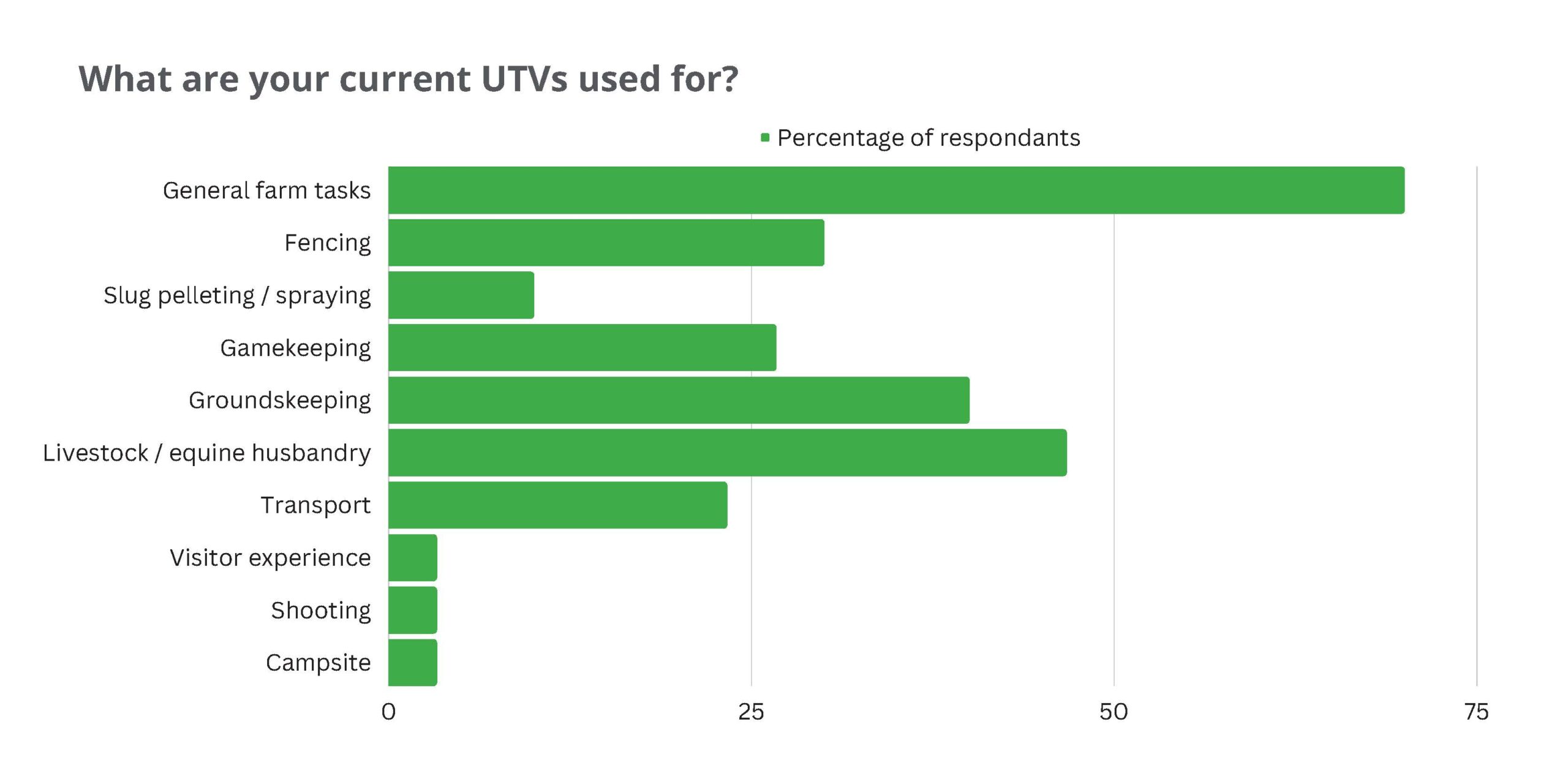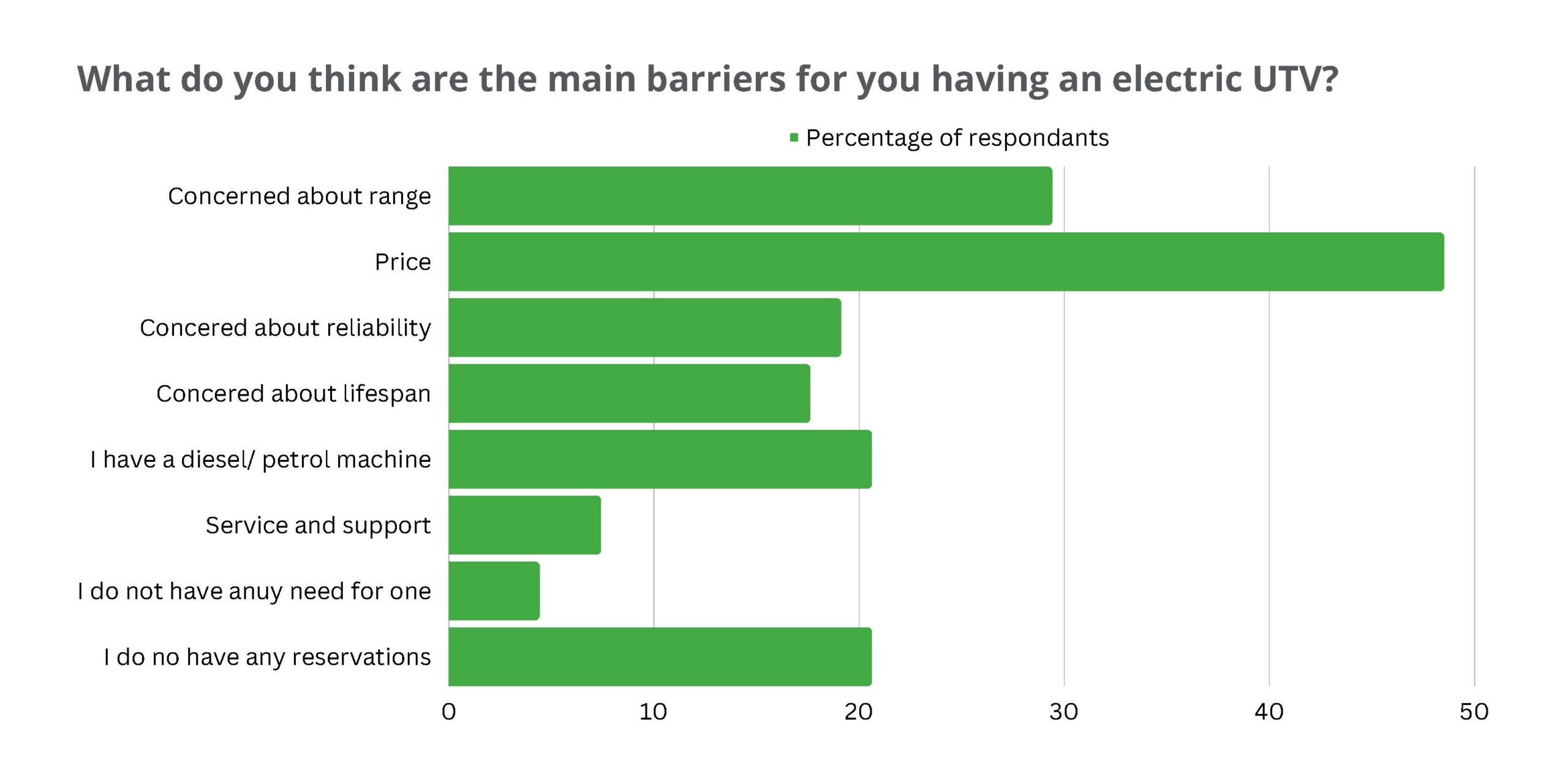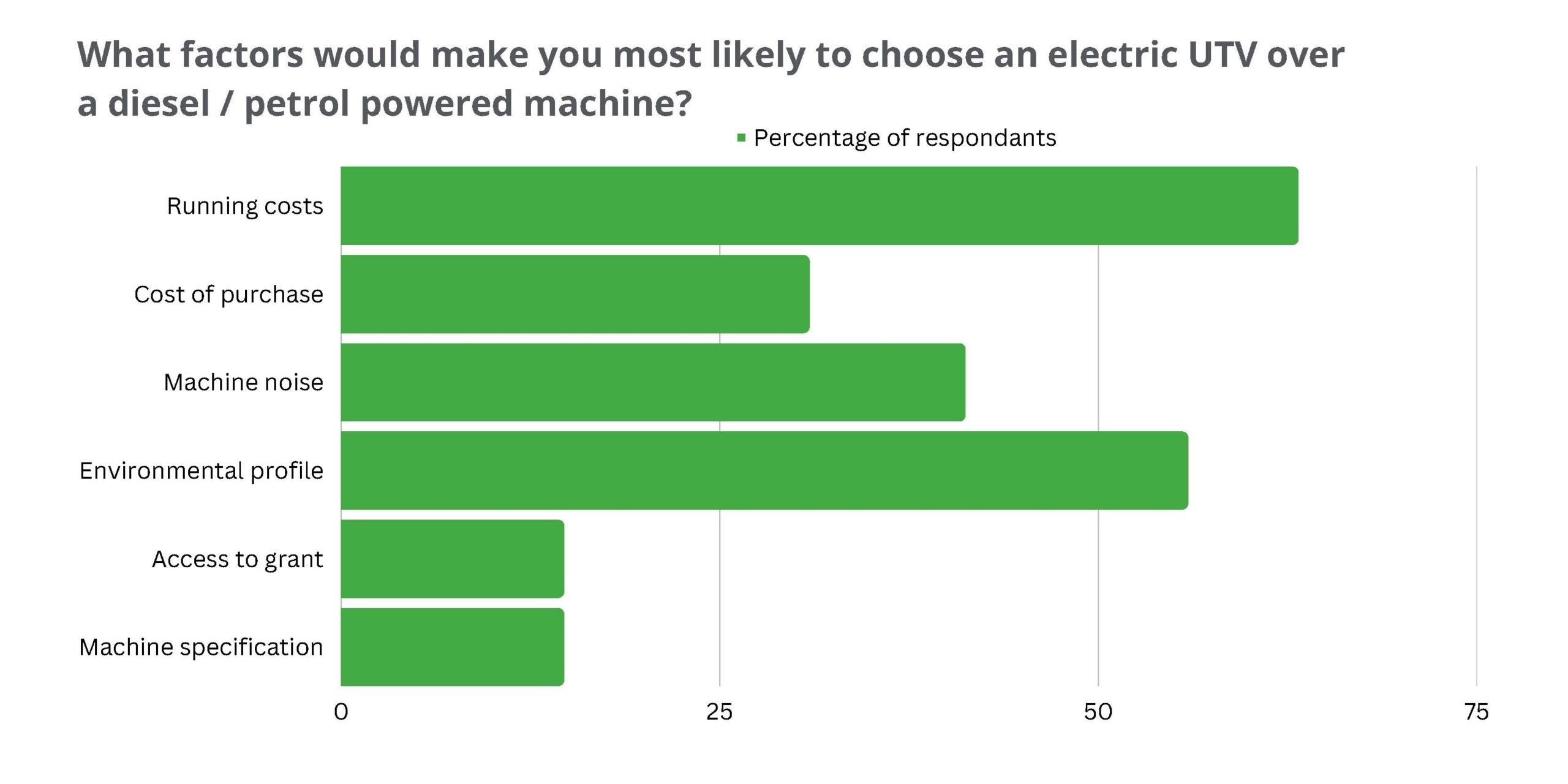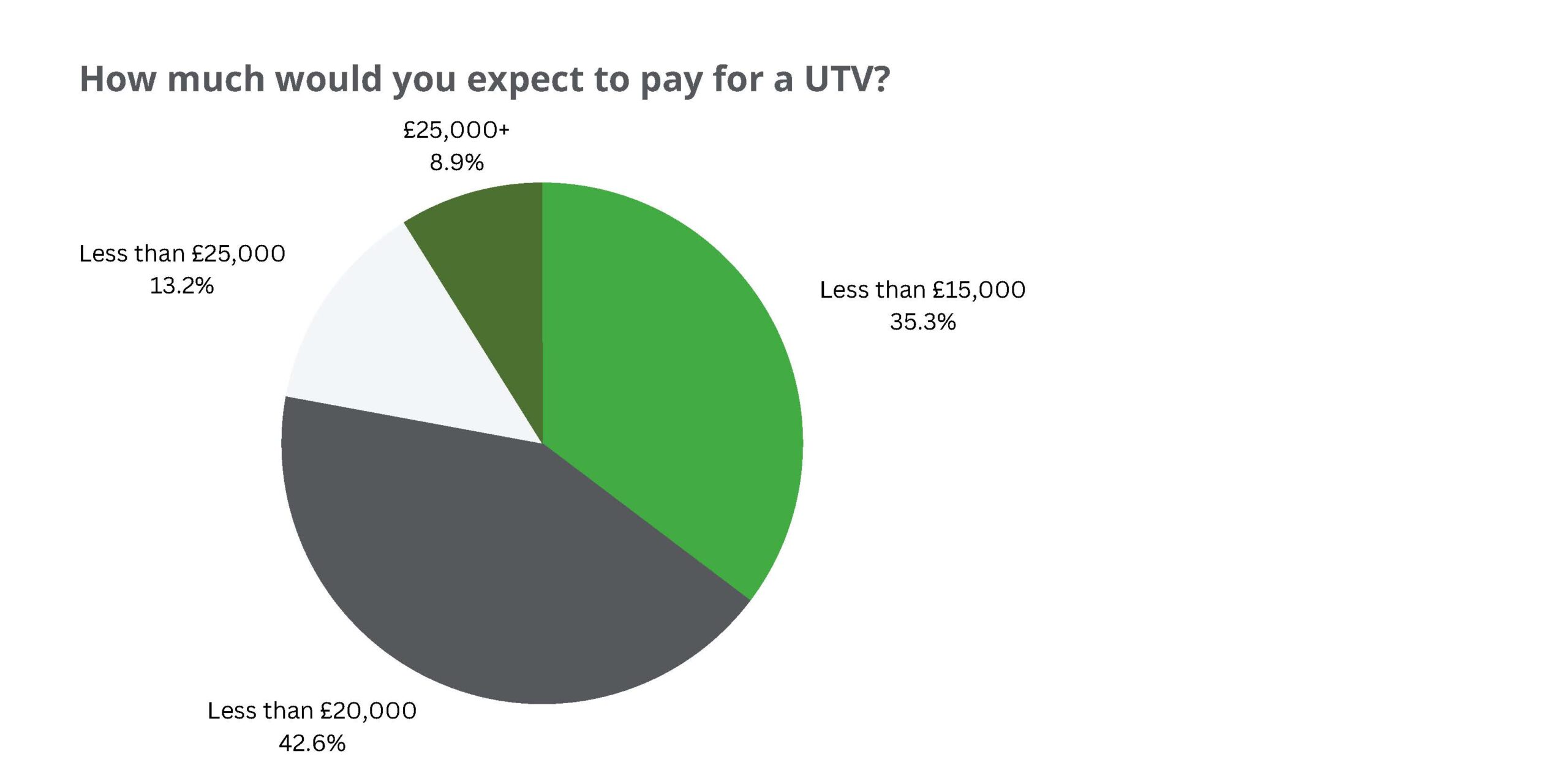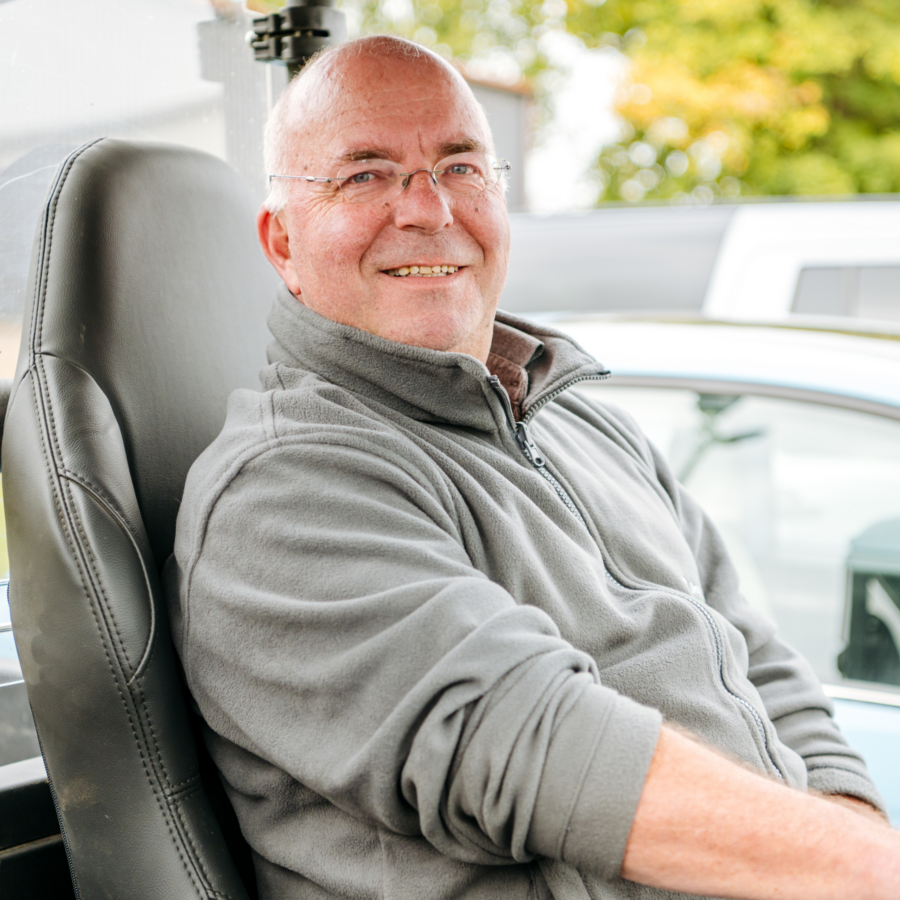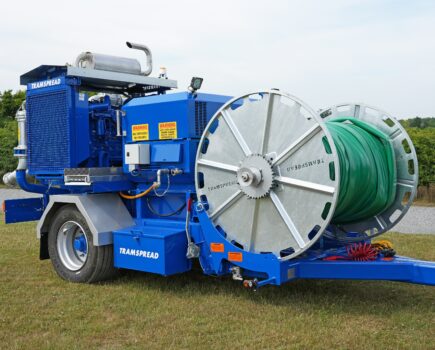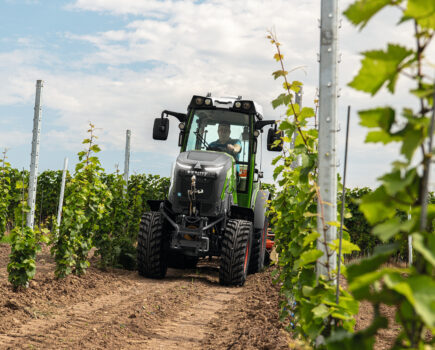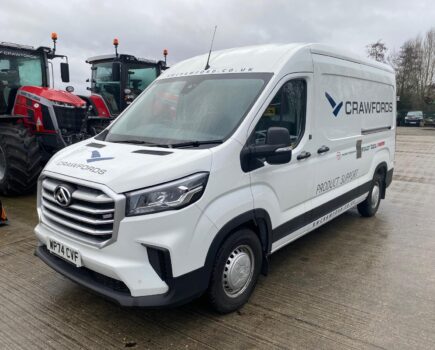The pioneering electric UTV supplier, Electric Wheels, announced the results of a survey of farmers who attended Groundswell and Cereals this year. It reveals their attitudes toward transitioning to electric-powered farm transport, with it set to become the go-to option.
The motoring industry is in the middle of an electric revolution, with new and existing car manufacturers competing to dominate a market that the drive for sustainability has upended. With its unique challenges, the transition has been slower in agriculture. However, farm utility vehicles are ripe for a realignment from petrol and diesel to electric.
Electric Wheels created the survey to discover farmers’ attitudes towards transitioning to electric-powered farm transport. The questionnaire was answered by visitors to Electric Wheels’ stand at Groundswell and Cereals, with one lucky farmer winning a week’s UTV hire.
Almost half (44%) of the respondents currently have a UTV, and nearly all own a diesel or petrol-powered machine. When asked about what they use their UTV for, general farm tasks was the most common answer (70%), followed by livestock and equine husbandry, then groundskeeping (12%).
Of those farmers that do not have a UTV, most either used a four-wheel drive or quad bike instead. “Whenever a potential customer who owns a quad bike approaches us, they already understand their shortcomings,” says Electric Wheels’ managing director, Chris Hurdle (pictured). “Being exposed to the weather and the machine noise are both issues, but the big one is safety. It is tough to turn a UTV over, whereas quad bikes have a bad reputation for doing so. The conversion from quad bikes to UTVs seems to be a direction of travel for farmers.”
For those considering an electric UTV, the price was perceived as the main barrier to not doing so. Chris believes this perception comes from the car market, where moving to electric involves a significant premium. “This is not the case with UTVs. You can take any vehicle in the Electric Wheels range, compare it against a diesel machine with a similar power output, and the prices are very comparable. You do not have to pay more to go electric.
“Some farmers who completed the survey were worried about the range, but we will always say that an electric UTV has enough range for a day’s work. If a farmer has concerns, we have a hire before you buy offer. They can hire a machine for a week to give them confidence in aspects of electric UTVs like the range, and if they then buy a machine, the cost of the week’s hire is deducted from the purchase price.” Chris adds.
Almost two-thirds of respondents cited running costs as the most likely reason for choosing an electric UTV over a conventionally powered vehicle. This is no surprise, with the electric cost being only 10-15% of the fuel range equivalent. It is the same with maintenance costs. There is no engine, fuel tank, or filters and only a small amount of oil sealed in the transmission, so when a service takes place, much less needs maintaining.
“The residual value is an often-overlooked factor with running costs. We run a hire fleet of 170 vehicles and sometimes refresh this by selling used machines. After three years of use, our ex. hire UTVs are only losing 35% of their value. The customers that have purchased these vehicles have been pleased with them, which gives an idea of their reliability and longevity.
The environmental profile is also a motivating factor when transitioning to electric. Some of the first UTVs we sold into the agricultural market went onto farms practising regenerative farming, often with the help of grant funding they have secured. We are seeing more interest from conventional farms that want to improve their environmental profile or face pressure from their customers. Moving to an electric UTV is an easy way to be more sustainable without compromising performance and making considerable savings in running costs over the machine’s life,” comments Chris.
When asked how much they would expect to pay for a UTV, 35% felt it should be less than £15,000, and 43% would spend up to £20,000. According to Chris, these price brackets are where Electric Wheels typically receive inquiries and have UTVs to match. The lead-acid battery version of the flagship Nipper UTV costs £13,495. However, most farmers upgrade to the Nipper Pro, which has a lithium-ion battery that increases the price to £16,995.
Chris founded Electric Wheels in 2019 and has seen farmers’ attitudes change considerably. “Consideration for the environment has improved since we first started selling electric UTVs, and there is a realisation that electric is a realistic alternative. In another year or two, it will become the norm. When they sum up all the advantages, it is an obvious choice for the farmers who go electric,” Chris concludes.
